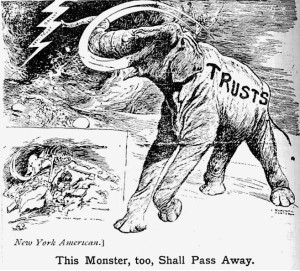 Hipps v. CBRE Inc. summarizes the present state of the law on several key issues about the enforcement of noncompetes (while federal-court litigation proceeds, nationwide, about the viability of the FTC’s new regulation that would substantially ban them). The Fifth Court’s holdings include:
Hipps v. CBRE Inc. summarizes the present state of the law on several key issues about the enforcement of noncompetes (while federal-court litigation proceeds, nationwide, about the viability of the FTC’s new regulation that would substantially ban them). The Fifth Court’s holdings include:
- Global? The worldwide restriction imposed by the agreement was unjustified because there was no evidence that the appellant’s work responsibilities extended to all the areas covered by the covenant.
- Harm. The Court agreed that irreparable harm had been established, citing evidence showing that the appellant had already engaged in activities that violated the noncompetition and non-solicitation provisions, including furthering business relationships with the appellee’s clients on behalf of a competitor.
- Consideration. The appellee had provided substantial consideration, including access to additional training, clients, proprietary information, and a substantial financial incentive.
- Specificity. The opinion quotes the provisions of the temporary injunction that satisfied the requirements for specificity about (a) the “reasons for issuance” of the injunction under Tex. R. Civ. P. 683, (b) the relevant confidential information, (c) prohibited conduct, and (d) prohibited clients (noting that “the trial court’s injunction order restrains only [the employee]” and not the new employer).
No. 05-24-00056-CV, August 16, 2024 (mem. op.).

 ty and a former OT employee for breach of a noncompetition agreement. Profinity counterclaimed for violations of the Texas antitrust statute. The jury found against OT and for Profinity; the trial judge adopted the verdict as to OT’s claims and granted JNOV on Profinity’s. The Dallas Court of Appeals affirmed, changing only the basis for resolution of the antitrust claim.
ty and a former OT employee for breach of a noncompetition agreement. Profinity counterclaimed for violations of the Texas antitrust statute. The jury found against OT and for Profinity; the trial judge adopted the verdict as to OT’s claims and granted JNOV on Profinity’s. The Dallas Court of Appeals affirmed, changing only the basis for resolution of the antitrust claim.